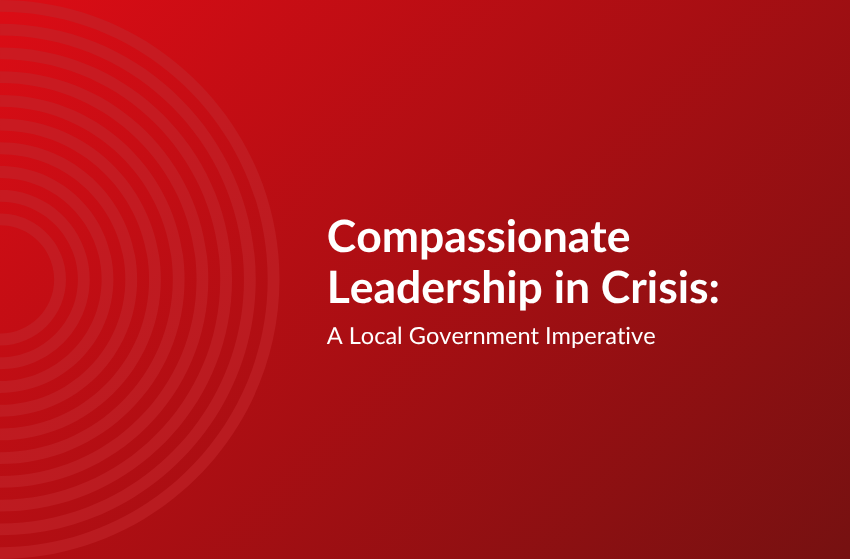In times of crisis, the quality of leadership significantly impacts the outcomes for those affected. One of the most pressing crises facing the UK today is homelessness. The statistics are staggering, with thousands of individuals and families experiencing homelessness across the country. Addressing this complex issue requires leaders who embody compassion and empathy.
Compassionate and empathetic leaders possess a distinct set of qualities that enable them to more effectively address the needs of vulnerable families and communities. These leaders understand the human experience, empathising with the struggles faced by those experiencing homelessness in the UK. Why is this important? It means that when policies and programmes are designed and implemented, they try to address the root causes of the crisis and not just the symptoms. empathetic leaders have a greater propensity to build trust and rapport, creating a collaborative environment where solutions can be iterated and delivered effectively. Compassionate leaders will naturally embed diverse opinions, valuing the lived experiences and perspectives of their team members and communities. This fosters an inclusive environment that encourages innovative solutions to the homelessness crisis, drawing in partners and stakeholder to tackle a more system-led change. Additionally, empathetic leaders can provide emotional support and guidance to their team members, helping them navigate the challenges of working in crisis situations and promoting long-term resilience.
Reflective practice is another crucial component of effective leadership in times of crisis, creating opportunities for team members to reflect on the challenging situations they are dealing with, particularly when engaging with vulnerable individuals experiencing homelessness. This reflection is vital to address the emotional and mental toll that such work can have on staff. By fostering a culture of reflective practice, leaders can help their team members process their experiences, identify areas for growth, and develop coping strategies to manage stress and prevent burnout. Reflective practice also enhances team members’ emotional intelligence and self-awareness, enabling them to provide more effective support to the individuals they serve.
Finding and recruiting leaders with the necessary compassion, empathy, and commitment to reflective practice to address the homelessness crisis is more challenging, during periods of disruption because they are in high demand and often more difficult to find. However, several strategies can help identify and attract individuals with these essential qualities. Prioritising emotional intelligence (EQ) and incorporating assessment to measure by candidates’ propensity to understand and manage their emotions and those of others is a good start. Focusing on values and motivations during the recruitment process is also essential to determine if values align with the organisation’s mission to address homelessness. Reviewing candidates past experiences of working with vulnerable individuals, in crisis situations, can provide
valuable insights into their ability to lead with compassion and empathy. Implementing behavioural interview techniques can assess candidates’ responses to hypothetical situations related to homelessness and crisis management, helping to identify candidates who demonstrate the desired qualities in real-world scenarios. Moreover, fostering a supportive organisational culture that values and promotes compassion, empathy, and reflective practice can attract like-minded individuals and support the development of these qualities in current leaders.
In executive search, particularly for leadership roles within homelessness services, as well as assessing candidate leadership styles and strategic skills, their capacity for self-awareness and emotional regulation should also be measured. The Hogan Development Survey highlights personality derailers, which are traits that may emerge under pressure and potentially undermine leadership effectiveness. These derailers often originate from strengths that have been overused. If a leader’s strength is compassionate and empathetic leadership, then their derailers might be an excessive need to please, avoidance of conflict, or difficulty setting boundaries, behaviours that can emerge under pressure and unintentionally undermine their effectiveness. All leaders have the potential for derailment; the key lies in developing self-awareness and strategies to manage these risks before they impact performance or relationships. We use the Hogan Development Survey as part of our profiling process, supported by in-house psychologists who explore these profiles with candidates to assess how aware they are of their derailers and how effectively they manage them.
Leaders can take proactive steps such as engaging in coaching, establishing feedback mechanisms, or setting aside time for structured reflection. These actions help leaders recognise early warning signs in their behaviour and make adjustments before negative patterns take hold. In high-pressure environments such as homelessness services, where leadership decisions have a direct impact on vulnerable individuals, this kind of self-management is essential for building trust, maintaining team cohesion, and delivering compassionate and effective services which is critical to addressing the UK’s homelessness crisis.
Assessing leaders first on their emotional intelligence, behaviours values and motivations, rather than a focus on skills and career history, needs a different recruitment approach. Considering lived experience, implementing behavioural interviews, and using assessment leadership style data to predict likely success and challenges in role should form part of the recruitment and onboarding process. Organisations themselves should recognise a heightened need to foster supportive culture that encourages reflective practice, equipping leaders with the necessary skills and resilience to navigate challenging times and create lasting positive change.
Insights from GatenbySanderson’s Leadership Research
GatenbySanderson’s recent research into CEO and CFO behaviours provides valuable insight into the traits that drive success, and those that derail it under pressure. These reports explore how leaders can balance strategic vision with emotional intelligence, and how derailers like perfectionism or conflict avoidance can impact transformation efforts.
Want to explore how your organisation can recruit and develop emotionally intelligent leaders to tackle homelessness?
 Contact Ben Parsonage,
Contact Ben Parsonage,
Senior Consultant, Local Government Practice
ben.parsonage@devgatenbysanderson.com
